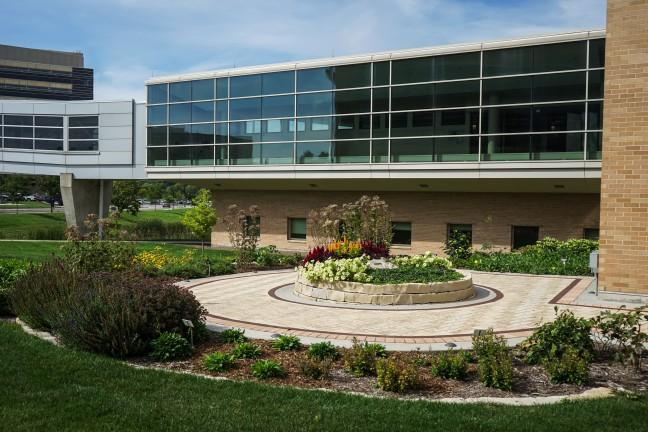University of Wisconsin researchers found new non-pharmacological interventions to improve dementia patient and caregiver moods.
Researchers within UW’s School of Pharmacy, in association with Generation Connect, found that music, videos and photos on tablets improved the mood of dementia patients and their caregivers. The study, which began in 2018, surveyed patients with dementia over more than 1,000 sessions and found that 93% of patients’ moods improved from negative to positive or stayed positive.
Generation Connect utilizes technology — specifically tablets and apps — to create a non-pharmacologic method of care for people with dementia. They focus on creating a personalized experience for patients through family members’ suggestions and content, such as music or family photos.
Aaron Gilson, a health policy research scientist within the UW School of Pharmacy, analyzed the data Generation Connect collected and said the results are exciting and noteworthy.
“It’s interesting because where the care was being given, either in skilled nursing facilities or in-home care, that led to whether or not the person started with a lower mood,” Gilson said. “But with most patients when they were engaged in a tablet-led engagement session those moods improved, or they maintained at a positive level.”
These findings are significant because they show tablet usage could be a viable alternative to pharmacological care methods if they seem warranted, Gilson said.
Over 50 million people worldwide have dementia, which is a loss of cognitive functioning and behavioral abilities to the point where it affects a person’s day-to-day life, according to the National Institute on Aging.
With U.S. dementia rates set to double by 2060, according to a report by the Center for Disease Control and Prevention, finding viable alternatives to pharmacological care methods can help to increase the quality of In Home Alzheimer’s Care for patients with dementia.
James Ford, a professor in the School of Pharmacy and a researcher on the study, said finding alternatives is important because of the ways in which society is changing and how people want to live their lives.
“It’s important because as society is aging — I think people are living longer and there’s an increased emphasis on older adults choosing to try and live at home if possible,” Ford said.
Alternative care methods can have benefits for caregivers as well, Ford said. Andrea Gilmore-Bykovskyi, a professor in the UW School of Nursing and expert on dementia care, said finding ways to improve caregiver moods is important because, while their moods are not necessarily always negative, they do feel large amounts of stress from their jobs.
The study found that increases in dementia patient mood caused an overall improvement in caregiver mood as well. Caregivers were benefiting from tablet engagement sessions just like the people they cared for.
“The person with dementia mood improvement had a substantial positive impact on the ratings of the caregiver for that day,” Gilson said. “Positive mood improvement led to a better day for the caregivers, so it showed the relationship that caregivers have with the people for whom they are caring.”
Caregivers have a significantly high turnover rate as a result of stress from their job, Ford said. Caregiver stress stems from a range of responsibilities and feeling like they have to be on duty at all times, Gilmore-Bykovskyi added.
This stress takes a major toll on the mental and physical health of the caregiver. The caregivers then have difficulty getting the care they need because of time constraints, from constantly watching over patients and financial issues, Associate Dean of Research for the School of Nursing Barbara Bowers said. But people are willing to make sacrifices because these patients are people they care about, she added.
“It’s an intense, relentless, challenging job and people do it because they are devoted to whoever the person is — whether it’s a spouse or a parent it’s a labor of love,” Bowers said. “So, it’s rewarding at the same time it’s absolutely exhausting.”
Ford and Gilson, along with their colleagues at Generation Connect, decided to continue their research. They hope to create an interface to help families connect more with their loved ones and personalize the tablet experience, Ford said. They also want to do more systematic data collection that is HIPPA-compliant, Gilson said.
The new data-technology will focus on becoming more user friendly and more broadly applicable for healthcare facilities, Gilson said. As the research continues, Ford and Gilson hope to see more positive results to help improve the quality of life for both patients and caregivers.
“This is an opportunity to make a difference for care recipients and their caregivers for people who have dementia,” Ford said. “I think we all know somebody, whether it’s our family or friends, who have had to deal with the issue of dementia.”


